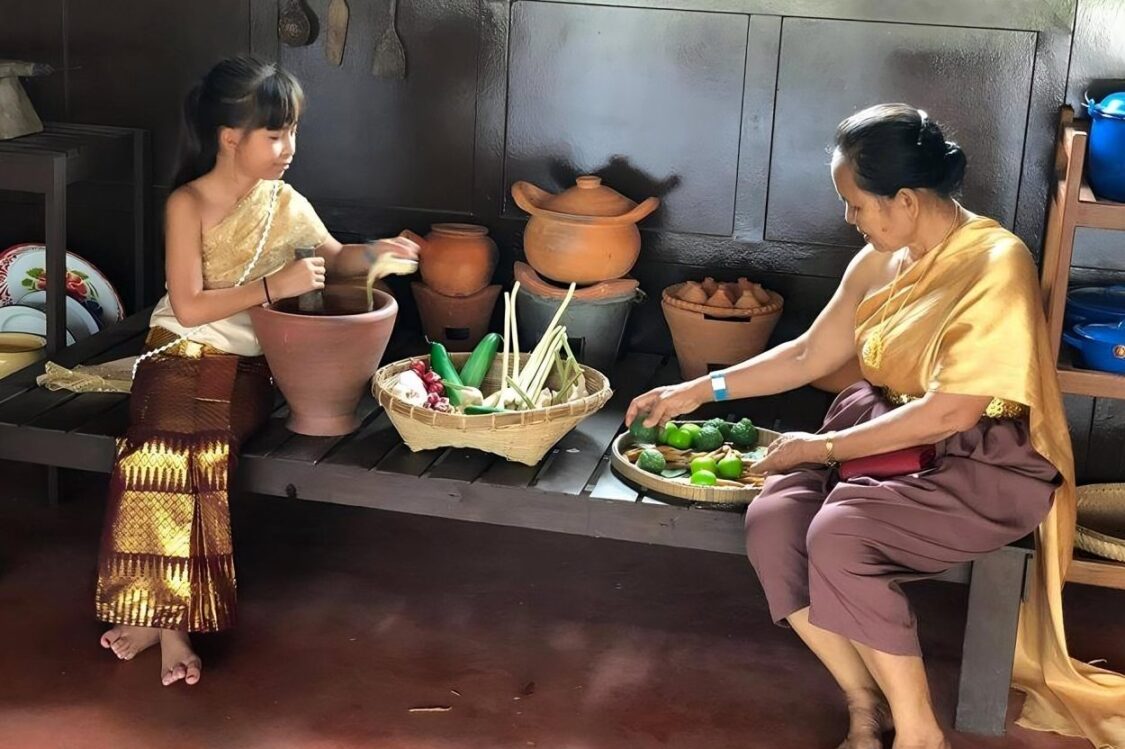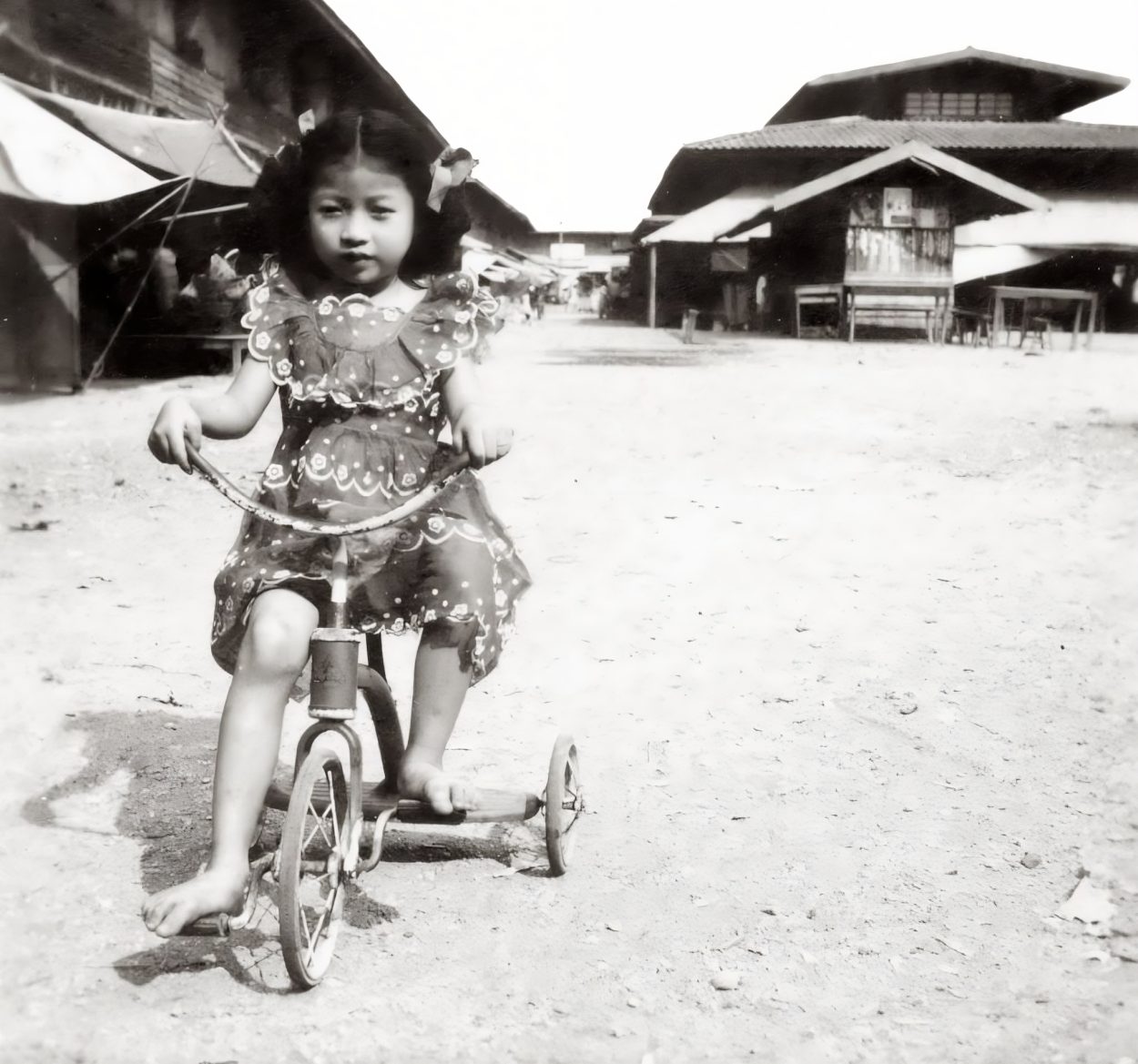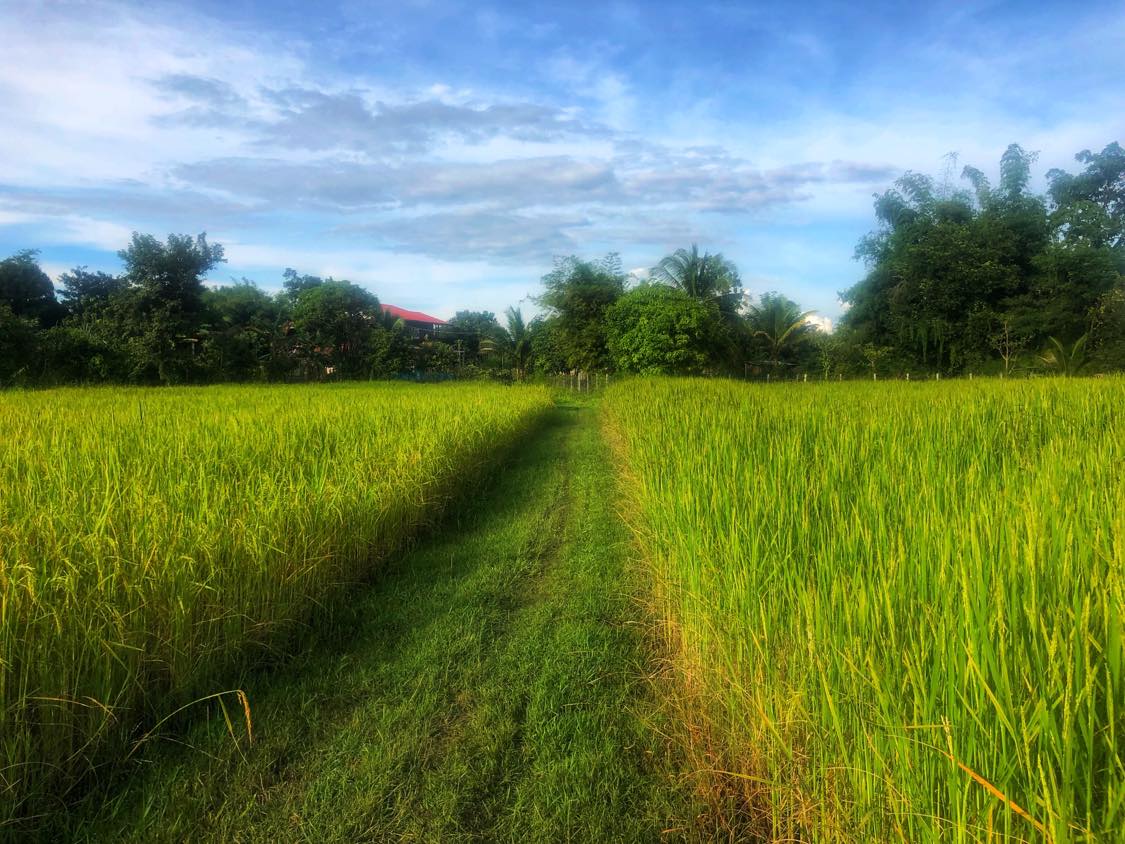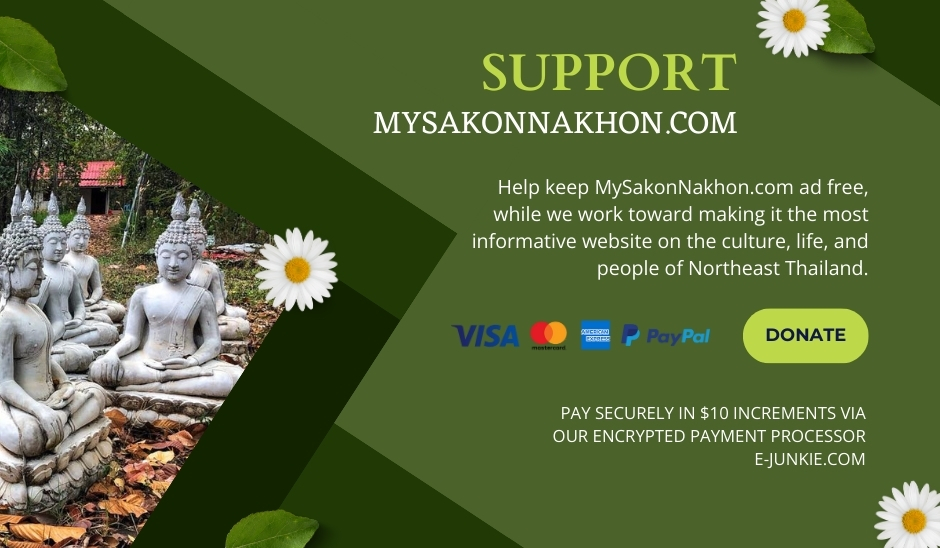
Traditional Thai Family Culture & Values

The traditional Thai family has taken a hit in recent decades. The decline began as Thailand started its transition from a predominantly agrarian society to a country with a large manufacturing base and tourism industry.
This caused large numbers of young Thai fathers (and mothers) to move to the Bangkok metropolitan area (and other cities) to take advantage of construction and manufacturing jobs, as well as employment in hotels, restaurants, bars, and resorts.
Historically, Thai families were large, and children helped with the chores of the farm, such as planting and harvesting rice fields, taking care of water buffalo, raising chickens, and tending to gardens.
Up through the 1970s the average Thai family had 3-4 children, with it not unusual for a family to have 6 children or more. However, it started decreasing in the 1980s to where today the average Thai couple has 1-2 children.
Thai families traditionally stayed in the same village, with multiple generations often living in the same home or just next door. Today, many rural villages are populated primarily by the old and the young — the grandparents taking care of their grandchildren, while the parents work far away in Bangkok or some other city where good jobs are plentiful.
Unlike in Western countries (which also once had large, agrarian multi-generational families under one roof), Thailand continues to promote traditional family values, even if the size of those families is growing smaller and its members no longer live in one house. In addition, many traditional Thai family cultural practices continue to thrive.

Thai Family Roles & Duties
Starting in early childhood, Thais are taught that the roles and duties of family members are:
1. To give love, warmth and generosity to each other, especially parents and grandparents, recognizing the sacrifices that they have made for your benefit and showing them the respect they have earned despite their shortcomings.
2. To help take care of and support each other financially, physically, and emotionally. This includes siblings, parents, and grandparents. One should look for ways to help, and not do so only when asked.
3. To spend more time with your family than with your friends, because the bonds of family are stronger and cannot easily be broken.
4. To practice forgiveness and patience. When any family member makes a mistake, always think of the word forgiveness, and don’t bring up those mistakes again.
Of course, not all Thai families perform these duties to the same degree, and some family members may disregard them entirely, but these family values are deeply ingrained in Thai culture. They are taught in schools, temples, and the media in Thailand. Therefore, all Thais are aware of these duties, even if some do not fulfill their family roles.
The vast majority of Thais, however, do embrace these values, and perform their family roles well. Westerner are often shocked at the financial generosity that Thai family members show not only elderly parents in need, but brothers, sisters, nieces, nephews, and other close family members. For example, an older sister with a job in Bangkok using her year-end bonus to buy her younger sister an iPhone; a husband paying for his sister-in-law’s university education; or an older brother using all of his lottery winnings to buy a younger sibling their first motorbike.
Westerners also are surprised by how quickly a Thai can just “let go” of some misdeed committed by a family member, and never bring up the bad behavior again. This “letting-go” (forgiveness) may not always immediate. But once a Thai decides that it is time to forgive and forget, they forget it totally, and move on. This ability is due to in part to the Buddhism that permeates Thai culture.
This same forgiveness, however, often is not extended to friends, who will quickly and unceremoniously be dropped after doing something bad. When Thais do extend the same forgiveness rules to a friend, it is usually to a close long-term friend who they literally refer to in conversation as their “sister” or “brother” — thus formally establishing them as a Thai family member in spirit, one who is deserving special consideration.

Traditional Thai Family Marriage Culture
One Thai family tradition that continues to this day is when a young couple gets married and moves into the house of the bride’s parents. This is called in Thai “dtàeng lôok-khŏie khâo bâan” (แต่งลูกเขยเข้าบ้าน), which means “marrying-the-son-in-law” into the house. Rarely will the daughter-in-law move into the house of the husband’s parents, except in some Thai-Chinese families, as this is a common custom in China.
The Thai newlyweds may live in the house of the bride’s wife for many years, and start to raise a child in the home. They may even reside there permanently, especially if both parents are working and the grandmother is taking care of the child.
However, if the wife has a younger sister who gets married, then the Thai tradition is for the elder sister and her husband to move out (often into a house that they have built nearby in the same village). The younger sister’s new husband then moves in, so the couple can get started in married life without the financial burden of renting or building a home.
Family Inheritance Protects Thai Culture
One thing that helps maintain traditional Thai family culture is the inheritance of land, in particular rice paddies or empty fields. Sons and daughters usually inherit property equally from their parents, and most rural Thais (though often cash poor) do own land in or around the village in which they live.
Many children in Thailand who have moved away from their parents to take jobs in the city have long-term plans to eventually return to the village in which they grew up. That is, their retirement plan is to build a home on land they have inherited from their parents.
To encourage this eventual move back home, Thai parents often will offer to give their child the land early (prior to their death) if they begin building a house on the land, thus proving their intent to genuinely move back home.
This practice is contributing to the continuation of the Thai tradition of having several generations of extended family living in the same village. If a son or daughter inherits land after the death of their parent and wants to sell it, they have an obligation to first ask their siblings if one of them wants to buy it, so that the land remains in the family and the sibling can eventually offer it to one of their children for the building of a home.
- The Hidden Dharma of Thai Language & Culture - May 11, 2024
- The Royal Ploughing Ceremony in Thailand – A History - May 8, 2024
- Dying Well the Buddhist Way in Thailand - May 7, 2024




